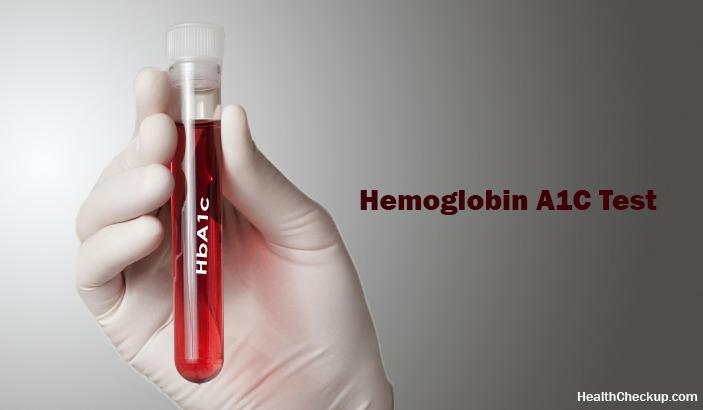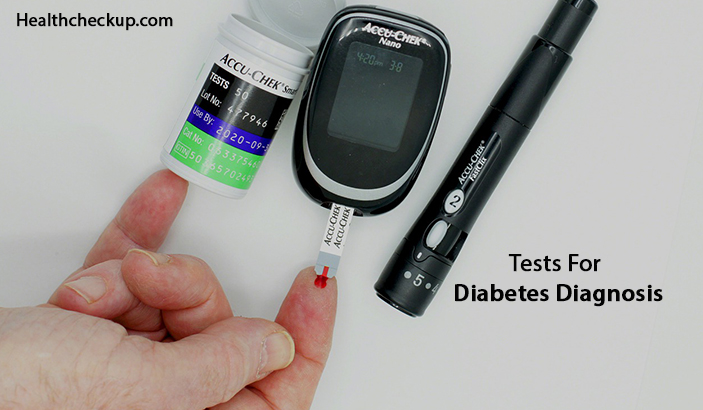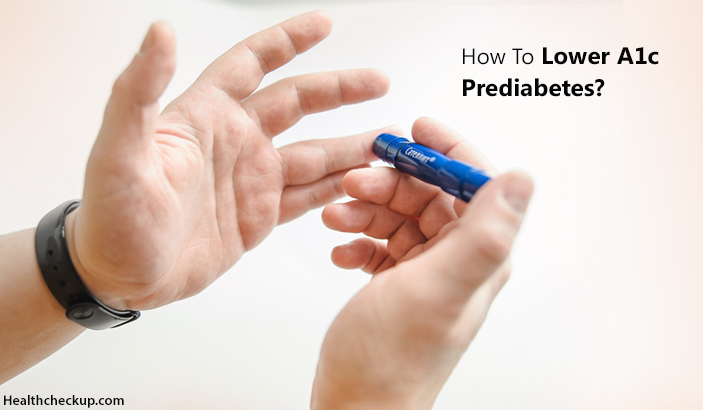The Hemoglobin A1C test is the most important blood sugar test for the diagnosis of both Type 1 and Type 2 Diabetes. This test is also an essential part of the long term treatment where it is used to measure how well the patient is responding to the treatment and how effectively the diabetes is being managed. The A1C test is known by a number of other names such as glycosylated hemoglobin, glycated hemoglobin, hemoglobin A1C and HbA1C.
But before getting into the details of the hemoglobin A1C test it is important to know what is hemoglobin. Hemoglobin is a protein molecule present in the red blood cells. It carries oxygen to the entire body and returns carbon dioxide from the body back to the lungs. The A1C test measures exactly what percentage of your hemoglobin is coated with glucose (glycated). The results of the hemoglobin A1C test show a person’s average blood sugar level for the past two or three months. The higher the level of A1C; the higher the risk of diabetes complications caused due to poor blood sugar control.
How The Hemoglobin A1C Test Works?
This diabetes test is done on a blood sample that is drawn from a vein in your arm or from the tip of your finger. The blood sample is taken to a lab for detailed analysis. A chemical charge is present in the HbA1c molecules and the amount of this charge differs from the charges on other hemoglobin components. The HbA1c molecules also differ in size compared to their components. Therefore, the HbA1c molecules are separated depending on the charge and size from other hemoglobin A components following a procedure called high pressure liquid chromatography (HPLC). This method separated mixtures into various components by adding them to special liquids and passing them under pressure through columns filled with a material that sorts the mixture into different component molecules.
Why the Hemoglobin A1C Test Is Done?
Your doctor may recommend the A1C test in order to diagnose prediabetes, Type 1 Diabetes or Type 2 Diabetes. Even after the diagnosis, the A1C test can be used to monitor the diabetes treatment plan. The result of the A1C test is a better reflection of the progress of your diabetes treatment plan because it measures the average blood sugar levels for the past two or three months rather than blood sugar level at a specific point in time.
- After the diagnosis, the frequency of the A1C test will depend on the type of diabetes that you have, your treatment plan and how well you are being able to manage your diabetes.
- The A1C test is recommended once every year in case of pre-diabetes, a situation that indicates a high risk of developing diabetes.
- This test is recommended twice every year in case of Type 2 Diabetes, provided the patient does not use insulin and his/her blood sugar level is maintained within the target range.
- It is recommended three or four times a year in case of Type 1 Diabetes.
- A1C test is recommended four times a year if a person has Type 2 Diabetes and he uses insulin in order to manage diabetes and has trouble to maintain the blood sugar level within the target range.
- A person may need frequent A1C tests if the doctor introduces some changes in the diabetes treatment or the patient starts taking a new diabetes medication.
What Can You Expect During The Test?
The A1C is a simple diabetes blood test and no special preparation is required for it. Unlike the fasting plasma glucose test, there is no need to opt for overnight fast for this test. You can eat and drink normally before the test. For the test your health care provider will take a sample of blood from a vein in your arm by inserting a needle into it. You can return to your daily activities right after the test.
Advantages of the Hemoglobin A1C Test
- The A1C is an extremely simple sugar test that requires no preparation.
- Because the HbA1c is not affected by short term fluctuations in blood glucose concentrations the test can be done any time, without any regard to when the last meal was eaten.
- Fasting is not necessary for this blood test.
- Physical or emotional stress and illness has no impact on the test results.
Results of the Hemoglobin A1C Test
A1C results less than 5.7% (39 mmol/mol) = Normal/Nondiabetic
A1C level 6.5% (48 mmol//mol) or higher = Diabetes
A1C level between 5.7% and 6.4% (39-46 mmol/mol) = Prediabetes (Increased risk of developing diabetes in future)
The normal HbA1c range will be below 5.7% for a person who does not have diabetes. A1C level may be above 8% for a person struggling with uncontrolled diabetes for a prolonged period of time. An A1C level of 6.5% or higher on two separate occasions confirms that a person has diabetes. A result ranging between 5.7 and 6.4% is considered prediabetic condition with a high risk of developing full-fledged diabetes in near future. The common A1C target for people undergoing diabetes treatment is 7% or less. If a person’s A1C level is above target then the doctor may bring about some changes in his/her diabetes treatment plan.
Certain Conditions where the Effectiveness of the A1C Test May be Limited
- In case of heavy chronic bleeding, the person’s hemoglobin stores may be depleted and this may affect the results of the A1C test.
- In case of iron-deficiency anemia, the results of the A1C test may be falsely high.
- If a person has an uncommon form of hemoglobin called hemoglobin variant then that person’s A1C test result may be falsely high or low.
- If a person has undergone a recent blood transfusion or has some form of hemolytic anemia then this test won’t be useful.
It must be remembered that the higher the level of A1C, the greater the risk of diabetes complications. So, consult with your doctor and always aim for an A1C goal of less than 7% in order to avoid the complications related to diabetes.
Medically Reviewed By










